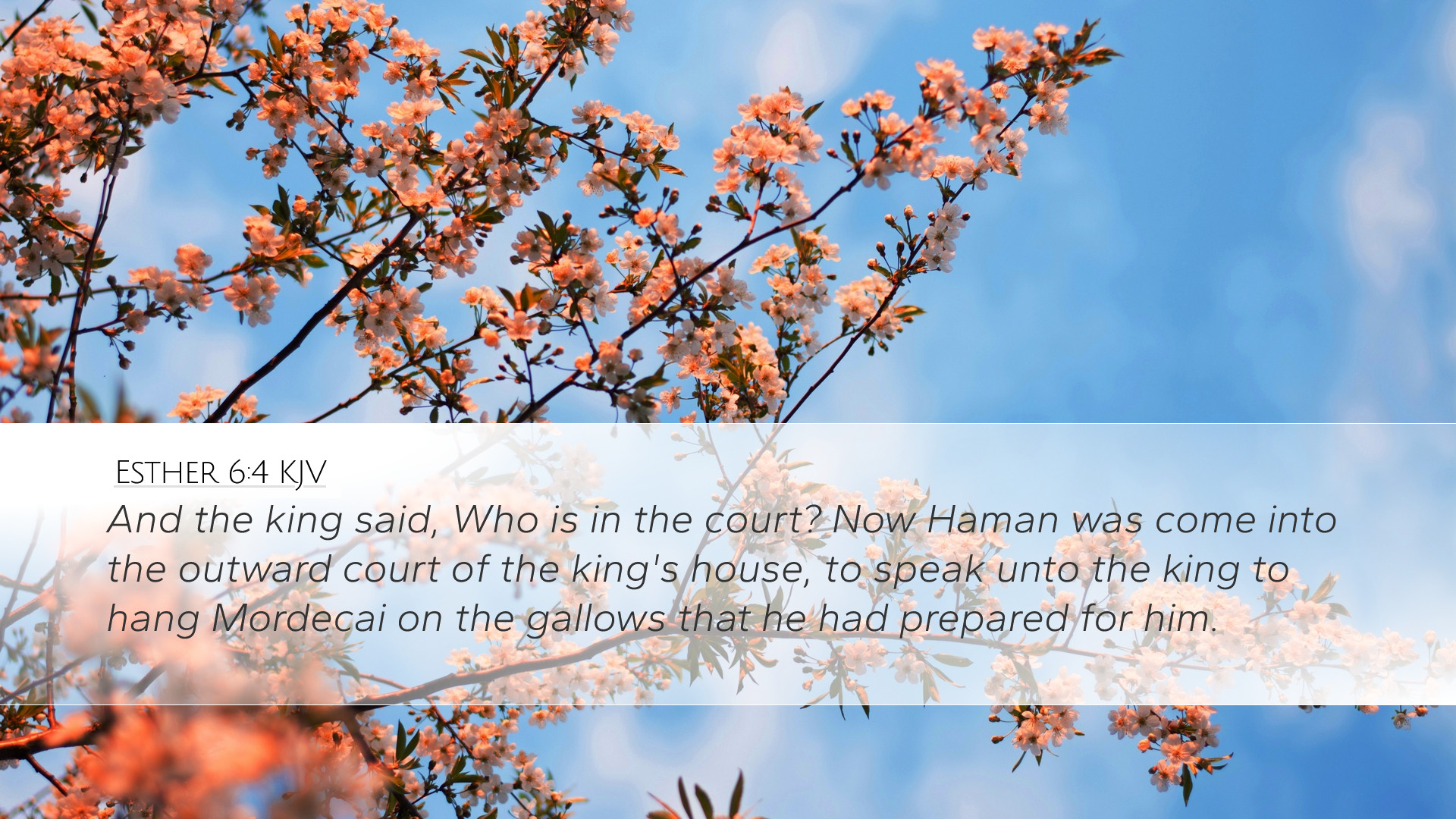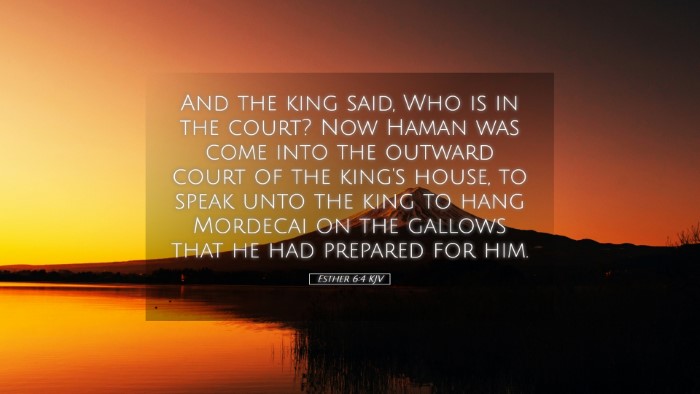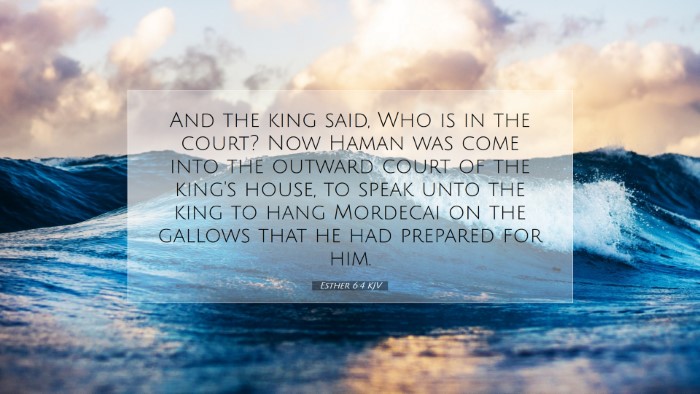Old Testament
Genesis Exodus Leviticus Numbers Deuteronomy Joshua Judges Ruth 1 Samuel 2 Samuel 1 Kings 2 Kings 1 Chronicles 2 Chronicles Ezra Nehemiah Esther Job Psalms Proverbs Ecclesiastes Song of Solomon Isaiah Jeremiah Lamentations Ezekiel Daniel Hosea Joel Amos Obadiah Jonah Micah Nahum Habakkuk Zephaniah Haggai Zechariah MalachiEsther 6:4
Esther 6:4 KJV
And the king said, Who is in the court? Now Haman was come into the outward court of the king's house, to speak unto the king to hang Mordecai on the gallows that he had prepared for him.
Esther 6:4 Bible Commentary
Commentary on Esther 6:4
The verse Esther 6:4 states: "So the king said, 'Who is in the court?'". This moment occurs within the broader narrative of the book, where the fate of the Jewish people hangs in the balance. Our exploration of this verse through the lenses of public domain commentaries uncovers vital themes relevant for pastors, students, theologians, and Bible scholars.
Contextual Overview
To understand Esther 6:4, we must consider its immediate context. Haman has just received a decree from King Ahasuerus to annihilate the Jews, and ironically, he is now seeking to be honored for his perceived loyalty. At this juncture, the queen, Esther, has called for a banquet. This moment encapsulates the tension and turning point in the story of Esther, where divine providence begins to manifest.
Insights from Matthew Henry
Matthew Henry remarks on the divine timing evident in this verse. He notes that the king’s inquiry, "Who is in the court?" suggests a providential orchestration of events. Henry relates this to the overarching theme of God's unseen hand guiding the course of history and personal destinies. For the believer, this underscores the importance of recognizing God’s presence even amidst tumultuous circumstances.
Insights from Albert Barnes
Albert Barnes highlights the character of King Ahasuerus as pivotal in this verse. According to Barnes, the king’s curiosity signifies his desire to be informed and involved in the governance of his realm. Barnes emphasizes that this moment showcases Ahasuerus’s vulnerability to manipulation but also hints at the divine judgment about to unfold against Haman and the schemer’s downfall. The inquisitive nature of the king indicates that he is not merely a passive ruler but someone whose thoughts and decisions are still subject to God’s control.
Insights from Adam Clarke
Adam Clarke discusses the implications of the king's question. He points out that the timing of Haman's entrance into the court is no accident but rather a significant turning point in the narrative. Clarke suggests that this moment reflects the principle that God often places individuals in strategic positions to fulfill His purposes. He also emphasizes that the inquiries of the king reveal God’s sovereign plan beginning to unfold, leading to Haman's humiliation and the elevation of Mordecai.
Theological Themes
- Divine Providence: The verse elucidates the theme of providence, highlighting that God is working behind the scenes, orchestrating events for the greater good of His people.
- The Nature of Authority: Ahasuerus's authority is shown to be limited and influenced by external forces, illustrating that all earthly rulers are ultimately under God's sovereign authority.
- Human Agency: The actions of Esther, Mordecai, and even Haman unfold as part of a divine narrative, emphasizing the importance of human actions in alignment with God's will.
Reflections for Pastoral Application
Pastors may draw several lessons from Esther 6:4. First, the need for prayerful dependence on God during uncertain times is crucial. Just as Esther strategically navigated the royal court, believers are encouraged to seek God’s guidance in their interactions and decisions. Second, the notion of divine retribution serves as a warning against the arrogance of Haman, prompting leaders to remain humble and cautious in their stewardship.
Conclusion
Esther 6:4 serves as a poignant reflection of God's providential care and sovereignty. Through the insights garnered from Henry, Barnes, and Clarke, we see a rich tapestry of themes emerge that resonate with our understanding of God's workings in history. As we meditate on this verse, may we be reminded of God’s faithful guidance in our lives and the unfolding of His perfect plan, even when circumstances seem dire.


